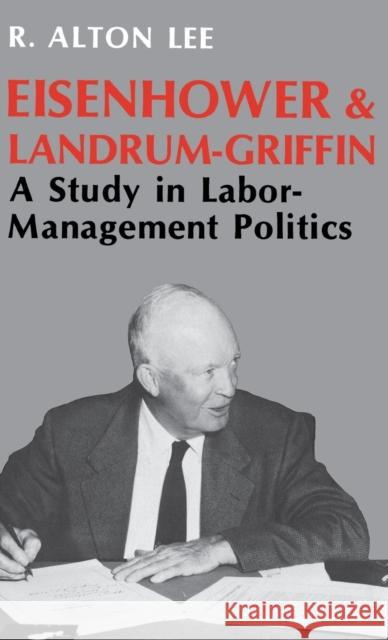Eisenhower and Landrum-Griffin: A Study in Labor-Management Politics » książka
Eisenhower and Landrum-Griffin: A Study in Labor-Management Politics
ISBN-13: 9780813116839 / Angielski / Twarda / 1990 / 216 str.
During the 1950s two Senate investigations, both highly publicized through the new medium of television, revealed the spread of racketeers and corruption among labor unions. Taking advantage of these sensational revelations, business interests, who for years had chafed against the federal government's pro-labor policies, mounted a campaign to curb labor's power. With the support of the business-oriented administration of Dwight Eisenhower, they pushed through Congress a new "reform" law -- the Landrum-Griffin Act. In this book, R. Alton Lee, author of an earlier study of the Taft-Hartley law, offers the first detailed legislative history of this important act and with it an examination of the Eisenhower presidency.Lee traces the development of the public's distrust of labor leaders and the rising sentiment for reform and then follows the progress of the legislation through both houses of Congress in the midst of moves and countermoves by labor and management. He shows how some of the leading actors in the struggle -- notably John Kennedy, Lyndon Johnson, and Barry Goldwater -- used the occasion to further their political ambitions. In the final vote the swing of public opinion against labor and the potent combination of conservative southern Democrats and northern Republicans secured for the law an overwhelming majority in Congress.The enactment of the Landrum-Griffin law, Lee concludes, is yet another example of Eisenhower's astuteness as a politician, one who marshaled the force of his popular appeal and adroitly deployed his administrative aides to achieve his goal. It also provides a revealing example of the interplay among public, president, and Congress in the American system. Eisenhower and Landrum-Griffin makes a valuable contribution to political and labor history and to a deeper understanding of the Eisenhower presidency.











